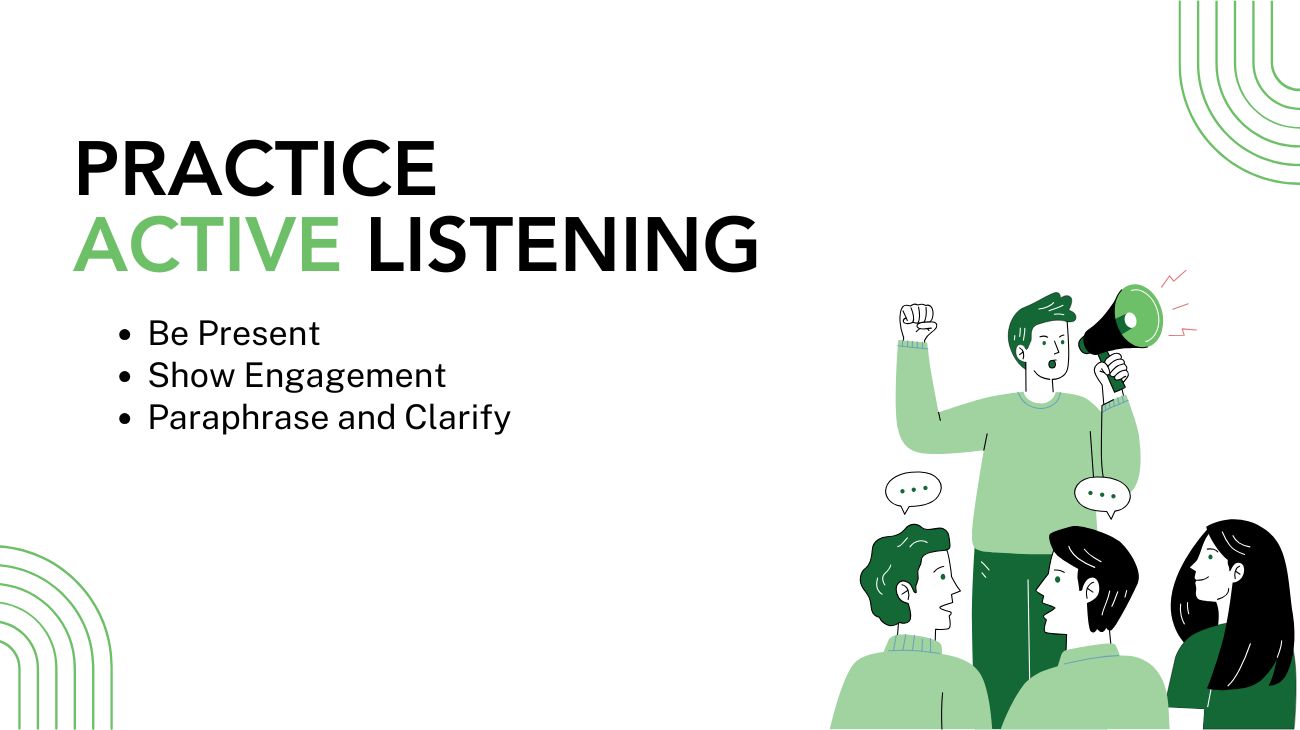Listening as a Leadership Superpower: Unlocking Trust and Success
In the fast-paced world of leadership, where decision-making and strategy often take center stage, one skill quietly stands out as a game-changer: listening. Far from a passive act, listening is a leadership superpower that fosters trust, sparks innovation, and drives organizational success. In this article, we’ll explore why active listening is essential for effective leadership, how it transforms workplace dynamics, and practical ways to cultivate this skill for lasting impact.
Why Listening Matters in Leadership
Great leaders don’t just speak—they listen. Active listening involves fully engaging with the speaker, understanding their perspective, and responding thoughtfully. This skill goes beyond hearing words; it’s about connecting with ideas, emotions, and unspoken needs. Here’s why it’s a cornerstone of exceptional leadership:
1. Builds Trust and Psychological Safety
When leaders listen attentively, they signal respect and value for their team’s input. This creates a culture of psychological safety, where employees feel comfortable sharing ideas and concerns without fear of judgment. A 2024 workplace study revealed that 78% of employees in high-trust organizations felt their leaders actively listened, compared to just 32% in low-trust settings. Trust, in turn, boosts collaboration and loyalty.
2. Drives Innovation and Problem-Solving
Listening uncovers diverse perspectives that fuel creativity. By truly hearing team members, leaders gain insights into challenges and opportunities that might otherwise be overlooked. For example, a tech company’s CEO credited a breakthrough product idea to a junior developer’s suggestion—heard during a routine team meeting where the leader prioritized open dialogue.
3. Enhances Decision-Making
Informed decisions require accurate information. Leaders who listen actively gather nuanced insights from stakeholders, enabling them to make well-rounded choices. A 2023 leadership report found that organizations with listening-focused leaders were 65% more likely to achieve strategic goals, as their decisions reflected a broader understanding of the business landscape.
4. Reduces Burnout and Turnover
Feeling unheard is a leading cause of employee disengagement. A 2024 employee wellness survey showed that 59% of workers who felt ignored by leadership reported higher stress and burnout. Conversely, leaders who listen empathetically foster a sense of belonging, reducing turnover and boosting morale.
The Cost of Poor Listening
Failing to listen can have dire consequences. Miscommunication leads to errors, missed opportunities, and fractured relationships. For instance, a 2022 case study of a retail chain showed that a store manager’s habit of dismissing employee feedback resulted in a 20% drop in customer satisfaction, as frontline staff felt too discouraged to share critical insights. Poor listening also erodes credibility—team members stop engaging when they sense their input doesn’t matter.
How to Cultivate Listening as a Leadership Superpower
Mastering listening requires intentional effort and practice. Here are actionable strategies to develop this skill and transform your leadership approach:

1. Practice Active Listening
- Be Present: Eliminate distractions—put away devices and focus entirely on the speaker.
- Show Engagement: Use non-verbal cues like nodding or maintaining eye contact to demonstrate attentiveness.
- Paraphrase and Clarify: Summarize what you’ve heard to ensure understanding, e.g., “What I’m hearing is that you’re concerned about the project timeline. Is that correct?”
2. Ask Open-Ended Questions
Encourage deeper dialogue by asking questions like, “Can you share more about your perspective?” or “What do you think we could do differently?” This invites team members to contribute meaningfully and feel valued.
3. Embrace Empathy
Listening with empathy means understanding the emotions behind the words. If an employee expresses frustration, acknowledge it: “I can see this has been really challenging for you.” Empathy builds stronger connections and encourages honesty.
4. Seek and Act on Feedback
Invite feedback on your listening skills and leadership style. More importantly, act on what you hear. If a team member suggests a process improvement, follow through or explain why it’s not feasible. This shows that listening leads to tangible outcomes.
5. Pause Before Responding
Resist the urge to jump in with solutions or rebuttals. A brief pause allows you to process the speaker’s message and respond thoughtfully, reinforcing that their input matters.
Real-World Examples of Listening in Action
Consider Satya Nadella, Microsoft’s CEO, who transformed the company’s culture by prioritizing listening. When he took over in 2014, Microsoft faced stagnation. Nadella actively sought input from employees at all levels, fostering a growth mindset that led to innovations like Azure and a renewed focus on collaboration. His listening-driven leadership helped Microsoft’s market value soar past $2 trillion by 2021.
Similarly, a small business owner in the hospitality sector turned around declining customer reviews by listening to frontline staff. Employees highlighted operational bottlenecks that management had overlooked. By acting on their feedback, the owner improved service delivery, boosting customer satisfaction by 30% in six months.
Listening in the Digital Age
In today’s hybrid and remote work environments, listening can be more challenging but is equally critical. Virtual meetings often lack the non-verbal cues of in-person interactions, so leaders must double down on active listening. Use tools like polls or anonymous surveys to gather input and ensure quieter voices are heard. Schedule one-on-one check-ins to connect personally with team members, reinforcing that their contributions matter.
Final Thoughts: Make Listening Your Leadership Edge
Listening is more than a soft skill—it’s a strategic asset that sets exceptional leaders apart. By truly hearing your team, you unlock trust, innovation, and resilience, creating a workplace where everyone thrives. Start small: in your next meeting, focus on listening without interrupting. Ask a thoughtful question. Reflect on what you’ve heard. Over time, these habits will amplify your impact as a leader.
Ready to harness listening as your leadership superpower? Begin today—your team, and your organization, will thank you.


